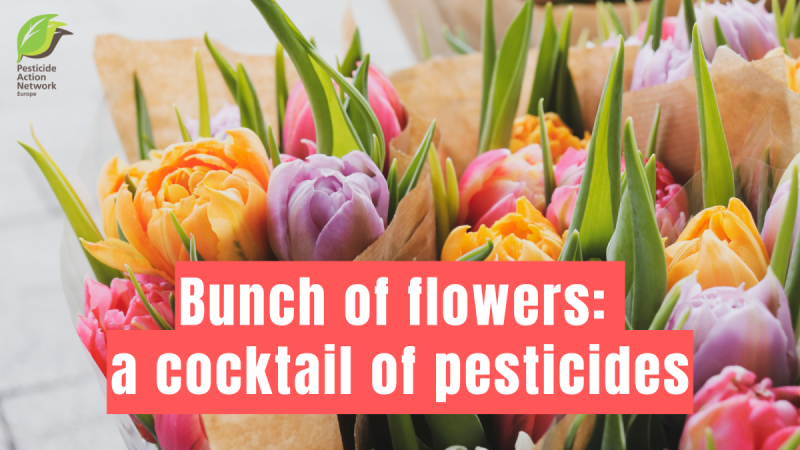In a new research in the Netherlands, a total of 23 pesticides were found on 6 bouquets of flowers, 8 of which were banned. This new research was commissioned by TV consumer program Radar and carried out by Avans University of Applied Sciences.
For the celebration of Mother's Day, a record number of flowers were sold. But are they a good gift for someone you love? In this research, six bouquets were collected from various florists and supermarkets. A total of 23 pesticides were found, eight of which were banned due to concerns about their effects on human health and the environment.
For each bouquet, several possible exposure routes to the pesticides were also investigated, such as through contact. This is a follow up of previous research by our member, Pesticide Action Network Netherlands, in which flowers were shredded before being studied to measure the pesticide content.
Wipe Test
First, a 'wipe test' was conducted to see if pesticides get on your hands when arranging a bouquet. Various pesticides were found on the leaves and stems of flowers.
A bunch of roses contained clofentezine, a substance banned in the EU since 2023 due to health and environmental risks. And a mixed bouquet contained carbendazim, which is linked to damage to genetic material and possible effects on fertility and during pregnancy and has been banned since 2014.
Touch
In addition to touch, the precipitation of flowers was also studied. “When a vase of flowers is on the table for some time, precipitation of, for example, pollen from the flowers appears underneath,” explains lecturer Jos Brouwers, who led the study. “This precipitation can also be a possible source of exposure, for example, when the flowers are on the dining table or when children are playing at the table or crawling through precipitation that has fallen on the floor.”
Conclusion
Pesticides, and even worse, banned pesticides, are present in conventional flower bunches. There are no legal limitations, since there is no standard for pesticides in imported flowers. What can you do to avoid pesticide exposure? Buy organic flowers, grow your own or look for an alternative present!
Read more:
